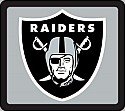
I just learned about a new Gettysburg book that was written by a person from Western New York. As you may know I was born in Niagara Falls, New York and since I am from that area I love finding materials from writers who hail from the Buffalo/Niagara Falls area. The authors name is James A. Hessler and his book is on an amazing topic that historians have debated for decades.
General Dan Sickles is one of the most colorful and controvisial figures in Civil War history and may be one of the most conttrovisial figures in American History. He was a man who murdered his wifes lover in cold blood and got away with it. He disobayed orders at Gettysburg, abondonded Little Round Top and marched his men into areas still remembered for the ferocity of the fighing that happened there; the Wheatfield, Devils Den, The Slaughter Pen, the Peach Orchard, the Valley of Death.
Here is a copied portion from the publishers webpage:
Sickles at Gettysburg: The Controversial Civil War General Who Committed Murder, Abandoned Little Round Top, and Declared Himself the Hero of Gettysburg, by licensed battlefield guide James Hessler, is the most deeply-researched, full-length biography to appear on this remarkable American icon. And it is long overdue.
No individual who fought at Gettysburg was more controversial, both personally and professionally, than Major General Daniel E. Sickles. By 1863, Sickles was notorious as a disgraced former Congressman who murdered his wife's lover on the streets of Washington and used America's first temporary insanity defense to escape justice. With his political career in ruins, Sickles used his connections with President Lincoln to obtain a prominent command in the Army of the Potomac's Third Corps-despite having no military experience. At Gettysburg, he openly disobeyed orders in one of the most controversial decisions in military history.
Most likely I will wait for this book to enter the market as a paperback because I am not an avid fan of hardcover books. However, I think this one is a keeper and a welcomed addition to my Civil War library. The book comes out on June 29 so check it out on Amazon and order a copy! This one is going to be a great read!
http://www.savasbeatie.com/books/SICKLES_book.htm









